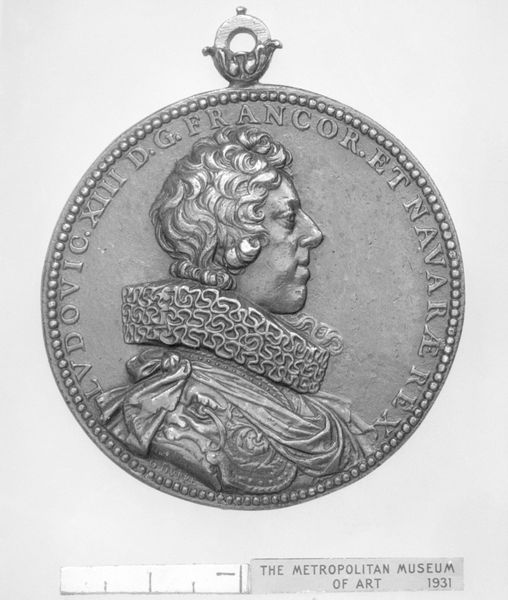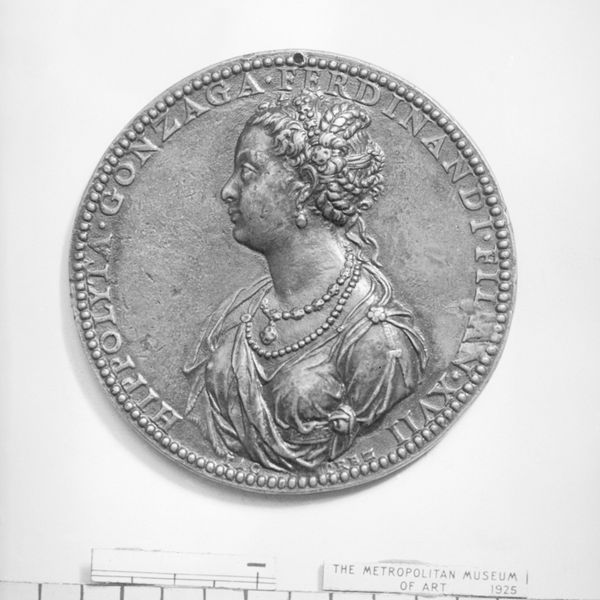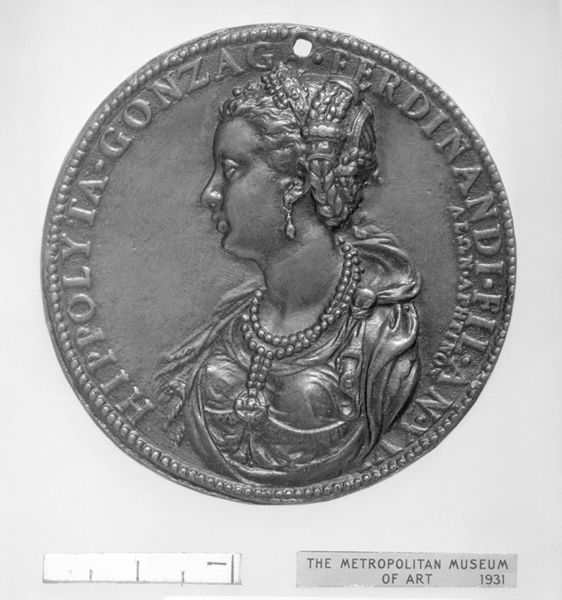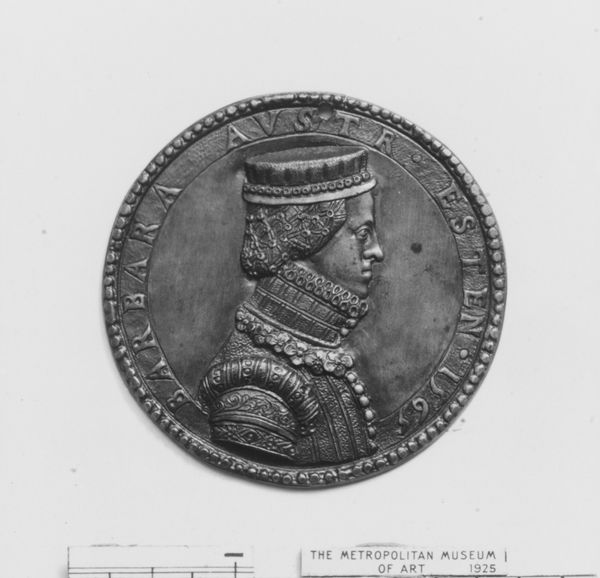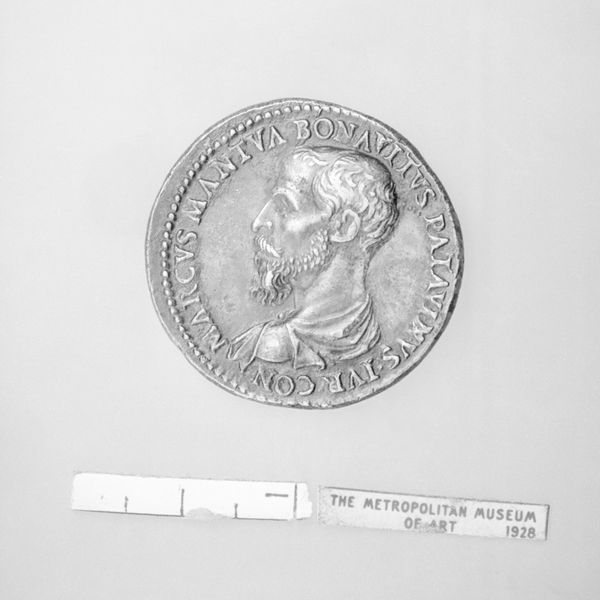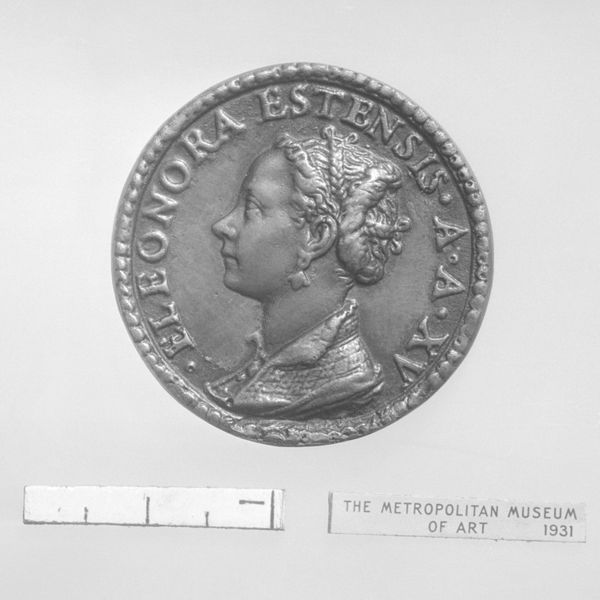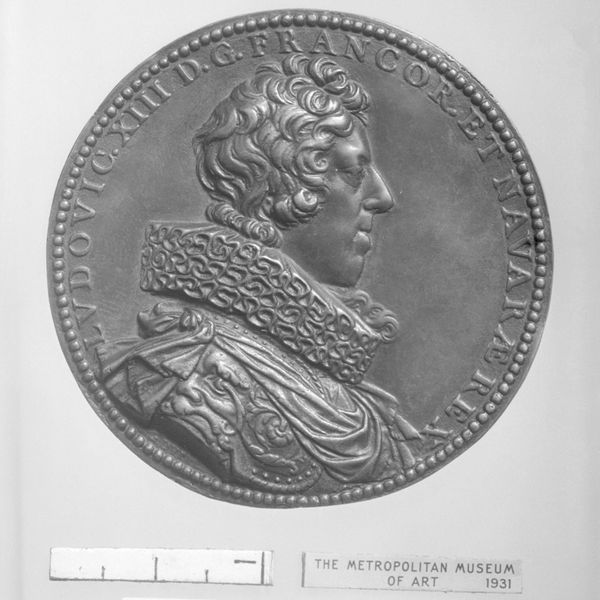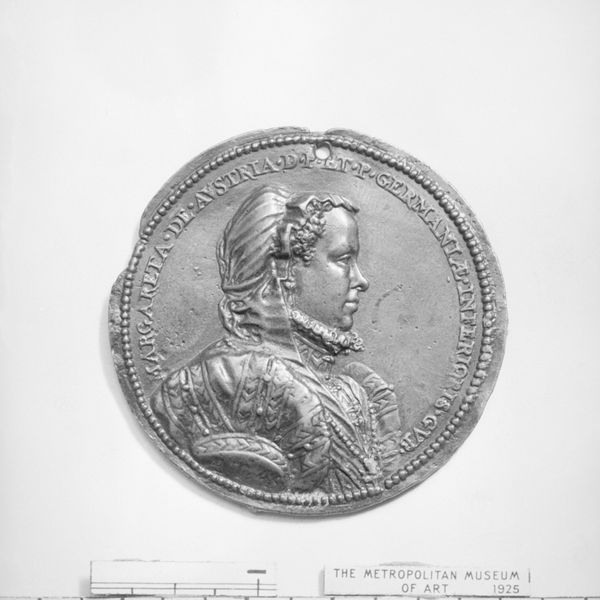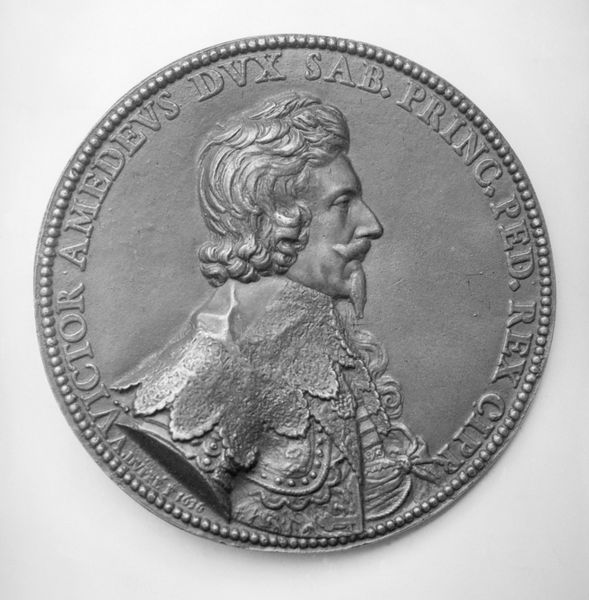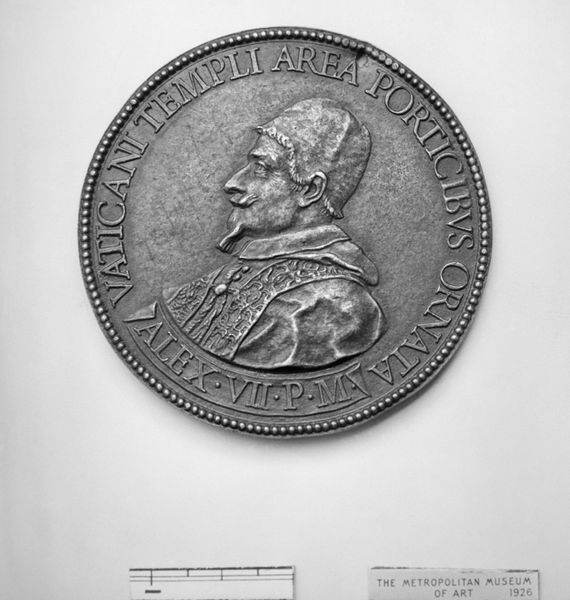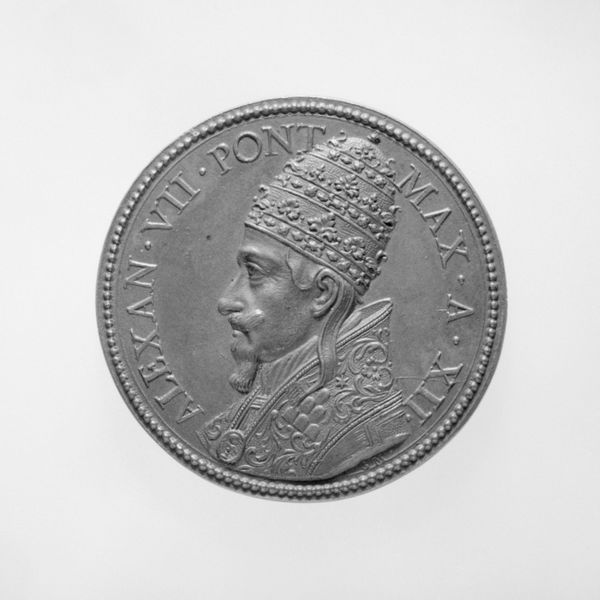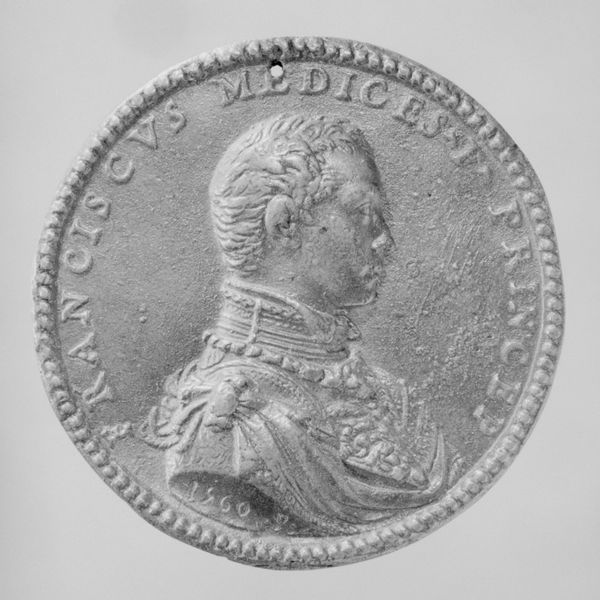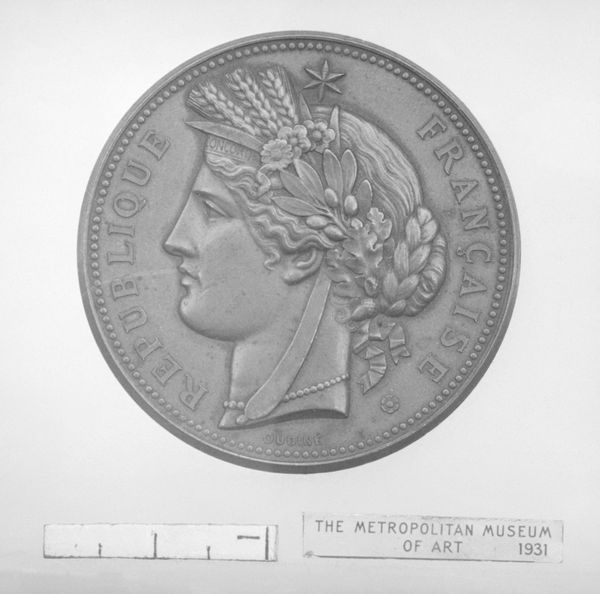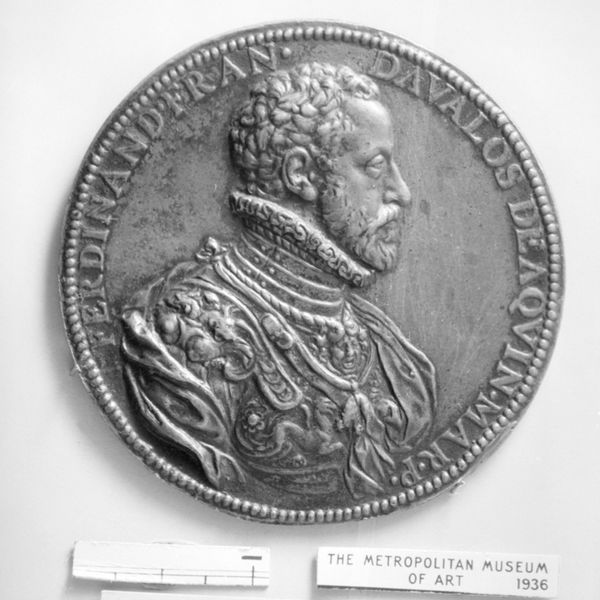
Louis XIII, King of France (b. 1601, r. 1610–43) 1626
0:00
0:00
carving, metal, sculpture
#
portrait
#
medal
#
carving
#
baroque
#
metal
#
old engraving style
#
sculpture
#
carved
#
decorative-art
#
profile
Dimensions: Diam. 2 1/2 in. (64 mm.)
Copyright: Public Domain
Curator: Here we have a medal created in 1626 by Guillaume Dupré, depicting Louis XIII, King of France. Editor: A medal, you say? My first thought was, what a strange pancake. A royal pancake, perhaps? All seriousness aside, I'm immediately struck by the sheer intensity of the ruffled collar and perfectly sculpted hair, isn’t it magnificent? Curator: Absolutely. Medals like this one served a powerful propaganda purpose in the Baroque era. They were distributed to commemorate important events or, as in this case, to promote the image of the monarch. Dupré was a master of this, serving as a court artist. Editor: So, it's like a very fancy royal calling card? I do wonder what it felt like to hold a piece of power in your hand back then. The metal itself would feel cold and imposing. Do you know what kind of metal he worked with here? Curator: It’s crafted from metal, we believe either silver or bronze, likely chosen for its durability and ability to capture fine detail. The inscriptions around the perimeter reinforce the king's authority and legitimacy -Ludovicus XIII, by the grace of God, King of France and Navarre. Editor: The inscription gives the piece its imposing aura. It's quite masterful. Knowing that it's more than just decorative—that it's a carefully constructed message—shifts my perspective completely. Did Louis actually see himself this way, all powerful and destined? Curator: Whether he did or not, the intention was to project that image to the public, solidifying his rule and discouraging dissent. Consider this object alongside the other visual strategies, plays, and public ceremonies staged. This wasn’t only about him. Editor: Thinking about it now, it feels like such a stark contrast to our modern age, with candid cameras and all. It's interesting how objects like this offer a glimpse into what it was to consolidate power and curate fame so overtly. What do you think we lose without such intentional declarations? Curator: We lose a certain kind of communal symbolism, perhaps. But we gain immediacy and, hopefully, authenticity, or at least the pretense of it. But it all becomes recorded—history in the making, like this artifact. Editor: A delicious thought. I think, after this "pancake", I feel like diving into history to see how monarchs had a sweet tooth to be remembered. Curator: Perhaps now it’s time for others to appreciate this artistic achievement as they continue through the gallery.
Comments
No comments
Be the first to comment and join the conversation on the ultimate creative platform.
